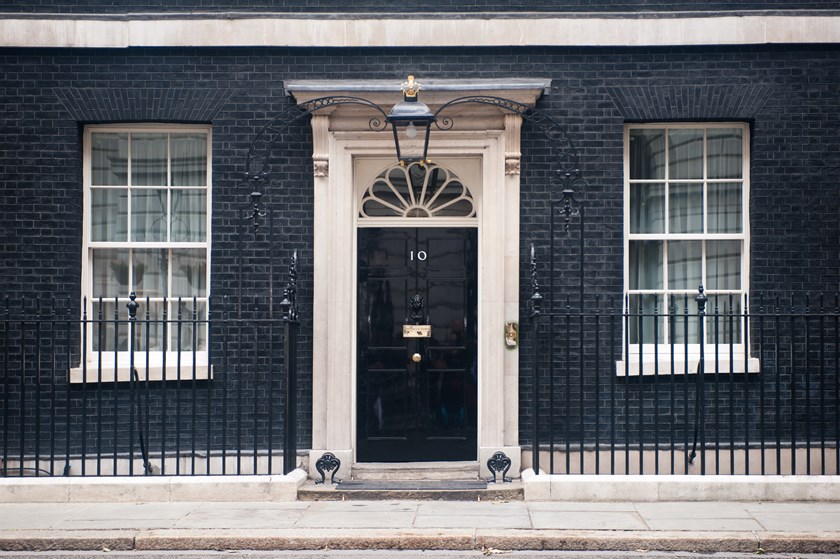When is a child not a child? Ensuring the correct construction of English law trust documents
Insight

Family life has changed in ways that would not have seemed possible 50 years ago. Blended families are increasingly common, as are people choosing to have children before they are married or with a partner of the same sex. Social change can outpace a settlor’s wishes and leave trustees uncertain as to whether somebody they might want to benefit is within the class of beneficiaries or not.
Common law definitions
Traditionally, the expressions “children” and “issue” in a trust deed meant only the natural and legitimate children and issue of that person, be it a settlor, or another beneficiary. This would not include adopted children or those born outside married relationships (so-called “illegitimate” children).
Legislation in England over the past 50 years, starting with the Family Law Reform Act 1969 (the 1969 Act), has changed that narrow definition so that, if used without further modification, “children” and “issue” now also include adopted, illegitimate, legitimated children (ie, children whose parents married after they were born) and others claiming descent through such persons. However, working out whether that extended definition applies depends on what the law was when the relevant deed or document was signed.
The Family Law Reform Act 1987 (the 1987 Act) says that (unless there is a contrary intention) any disposition of property after the date of the 1987 Act (be it written or oral, inter vivos or by Will or codicil) should be construed “without regard to whether or not the father and mother of either of them, or the father and mother of any person through whom the relationship is deduced, have or had been married to each other at any time.” This revised definition significantly widens the definition of “children” and “issue” who may be beneficiaries of a trust.
Where is the definition?
The English courts have been asked to decide where a trustee should look to find the correct definition of “child” or “issue”. Is it the deed or document creating the power or the deed or document exercising it? The courts have decided that it is deed or document creating the power that matters and, if it pre-dates either the 1969 Act or the 1987 Act, the traditional definition might apply (see Re Hoff [1942] Ch 298 and Re Brinkley’s Will Trusts [1968] Ch 407).
The logic of the judges’ decisions in these cases is that anyone who benefits from, for example, the exercise of a special power of appointment does so thanks to the grantor of that power, not the person exercising it, so any limits to the exercise of that power must be taken into account.
Is there another way round?
However, this principle does not apply to a power to apply capital for the benefit of a beneficiary, such as the statutory power of advancement in s.32 Trustee Act 1925. This is because, although such a power obviously derives from the settlement creating it, its limits are defined by statute, not the settlor, so the power has a more independent existence than those created expressly in the trust deed.
This means that the statutory power of advancement could be used to benefit children who are otherwise excluded from benefiting under the terms of the trust. The statutory power allows trustees to apply capital “for the advancement or benefit, in such manner as they may, in their absolute discretion, think fit, of any person entitled to the capital of the trust property or of any share thereof, whether absolutely or contingently on his attaining any specified age…”.
It is surely possible for trustees to conclude that exercising this power in favour of children who would otherwise be excluded might be for the benefit of the original beneficiary (for example, that child’s parent). The statutory power could also be used to benefit the spouse or partner of a beneficiary, even if such a person is not expressly a beneficiary in their own right, should trustees be satisfied that the statutory criteria are met.
Human rights law
But what if the governing document contains a limited definition of children and the statutory power of advancement does not apply? An excluded child might still be able to benefit under human rights law, particularly following the decision of Rose J (as she then was) in Re Hand’s Will Trust [2017] Ch 449.
The issue in that case was whether the adopted children of a beneficiary were “children” for the purposes of trusts created by a Will made in 1946, well before the traditional definition was modified. At stake was a half share of the residuary estate. If the adopted children were not “children” of the testator’s son, their cousins (children of the testator’s daughter) would take the whole residuary estate after the death of their parents.
It was accepted by Rose J that the adopted children’s claim would fail on the basis of English domestic law alone. But she allowed the claim on the basis that:
- the restrictions on the rights of adopted children to inherit infringed Article 8 of the European Convention on Human Rights (the right to respect for private and family life) taken in conjunction with Article 14 (the prohibition of discrimination);
- it was possible to use the Human Rights Act 1998 (the HRA 1998) to imply that the modified statutory definition was appropriate where the first test of that definition happened after the HRA 1998 came into force. This was not giving retrospective effect to the HRA1998 since the question of whether the testator’s son had any “children” only fell to be determined on his death, after the HRA 1998 had come into force; and
- in the circumstances it was not unfair to apply the HRA1998 in a way that reduced the rights of the sister’s legitimate children.
Although Re Hand’s Will Trust was a controversial decision, it was not appealed, and has been followed in at least one reported case since (Re JC Druce Settlement [2019] EWHC 3701 (Ch)).
At the very least, what Re Hand’s Will Trust demonstrates is the lengths to which the Court will go in pursuit of the principle that children should be treated equally, whatever the facts of the relationship between them and their parents.
Trustees should read their trust deeds and documents carefully and, where necessary, take advice where there is any doubt, but they can rest assured that often a solution can be found.
This publication is a general summary of the law. It should not replace legal advice tailored to your specific circumstances.
© Farrer & Co LLP, April 2023







